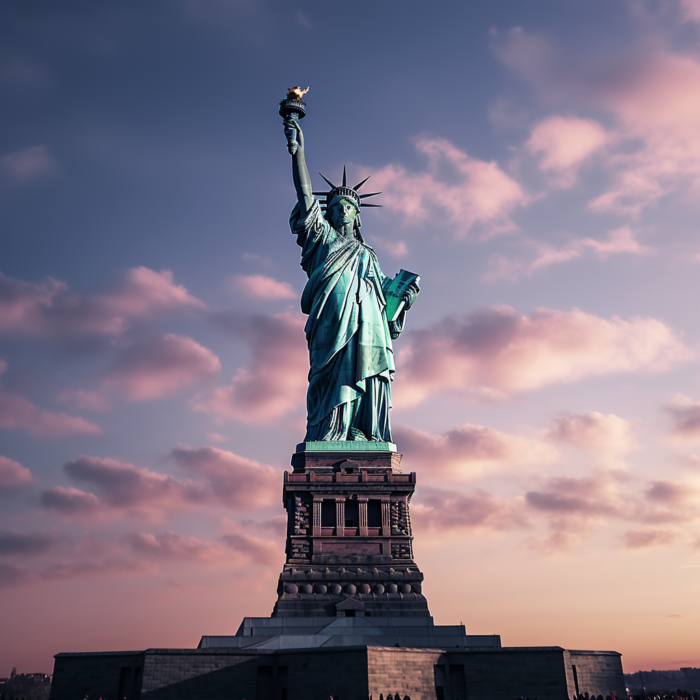
Introduction
Classical Liberalism, a foundational political and economic philosophy, has shaped the course of modern democracies. The Intellectual Roots of Classical Liberalism trace back to a time when thinkers began to challenge traditional norms and advocate for individual rights. Delving into these roots provides a clearer understanding of the principles that have guided many nations’ governance systems.
Historical Context
Before the emergence of Classical Liberalism, Europe was dominated by mercantilism and absolute monarchies. These systems centralized power and often suppressed individual freedoms. However, as the Enlightenment era dawned, a shift occurred. This period, marked by an emphasis on reason, science, and individual rights, laid the groundwork for the rise of Classical Liberalism.
Key Philosophers and Their Contributions
Several thinkers played pivotal roles in shaping the philosophy of Classical Liberalism. Their ideas, revolutionary at the time, continue to influence modern thought.
- John Locke
Locke’s ideas on natural rights became foundational to liberal thought. He believed in the inherent rights to life, liberty, and property. Furthermore, Locke introduced the social contract theory, asserting that governments exist primarily to protect these rights. If they fail, citizens have the right to revolt. - Adam Smith
Often dubbed the father of modern economics, Smith introduced the concept of the invisible hand. He argued that free-market capitalism naturally leads to societal benefits. Smith also critiqued mercantilism, emphasizing the importance of limited government intervention in economic affairs. - Voltaire
A fierce advocate for freedom, Voltaire championed both speech and religious tolerance. He frequently critiqued absolute monarchies and oppressive religious institutions, paving the way for more open societies. - Montesquieu
Montesquieu’s contributions to governance cannot be understated. He introduced the idea of the separation of powers, suggesting that governance should be divided among different branches. This division, he believed, would create checks and balances, preventing any single entity from gaining absolute power.
Classical Liberalism vs. Modern Liberalism
As with any philosophy, liberalism has evolved over time. While both classical and modern liberalism value individual rights, their approaches to economic and social policies differ. Classical Liberalism, rooted in the Enlightenment era, emphasizes economic freedom and limited government intervention. In contrast, modern liberalism tends to support a more active role for the government in addressing societal inequalities.
Key Principles of Classical Liberalism
Classical Liberalism, while rooted in historical thought, revolves around several core principles that remain relevant today.
- Individual Liberty and Rights
At its heart, Classical Liberalism champions individual freedoms. Every person, according to this philosophy, possesses inherent rights that no authority should infringe upon. - Rule of Law and Impartial Justice
For a society to function harmoniously, the rule of law must prevail. Classical Liberalism emphasizes that laws should apply equally to all, ensuring impartial justice. - Free-market Capitalism and Economic Freedom
Economic prosperity, in the eyes of classical liberals, stems from a free-market system. By allowing individuals to pursue their interests, society as a whole benefits. - Limited Government Intervention
While governments play a crucial role in safeguarding rights, Classical Liberalism cautions against excessive intervention. A limited government, they argue, best serves its citizens. - Peace through Trade and Diplomacy
Classical liberals believe in fostering relationships through trade and diplomacy. By promoting peaceful interactions, nations can avoid conflicts and ensure prosperity for their citizens.
Impact on Modern Democracies
Transitioning from theory to practice, Classical Liberalism has significantly influenced modern democracies.
- Influence on the American and French Revolutions
The ideas of liberty, equality, and fraternity resonated deeply during the American and French Revolutions. Both movements drew heavily from classical liberal thought, emphasizing individual rights and self-governance. - Establishment of Constitutional Republics
Inspired by classical liberal principles, many nations adopted constitutional republics. These structures prioritize individual rights, ensuring that governments serve their citizens rather than the other way around. - Spread of Liberal Democracy
Throughout the 19th and 20th centuries, liberal democracy gained traction. Nations worldwide began to recognize the value of individual freedoms, rule of law, and limited government intervention.
Critiques and Counterarguments
While Classical Liberalism has its proponents, it’s not without its critics.
- Concerns about Economic Inequality
Detractors argue that a purely free-market system can lead to significant economic disparities. Without checks and balances, economic inequality could increase. - Unchecked Individualism
Some believe that excessive individualism, as championed by classical liberals, might undermine societal cohesion. They argue that a balance between individual rights and collective welfare is essential. - Modern Challenges Requiring Collective Action
Issues like environmental degradation highlight the need for collective action. Critics argue that Classical Liberalism, with its emphasis on individualism, might fall short in addressing such challenges.
Conclusion
Classical Liberalism, with its rich intellectual roots, has undeniably shaped the world we live in. While it offers a robust framework for governance and individual rights, it’s essential to consider its critiques in our ever-evolving global landscape. As societies continue to grow and change, the principles of Classical Liberalism serve as a guiding light, reminding us of the value of individual freedoms and the importance of balanced governance.


Leave a Reply